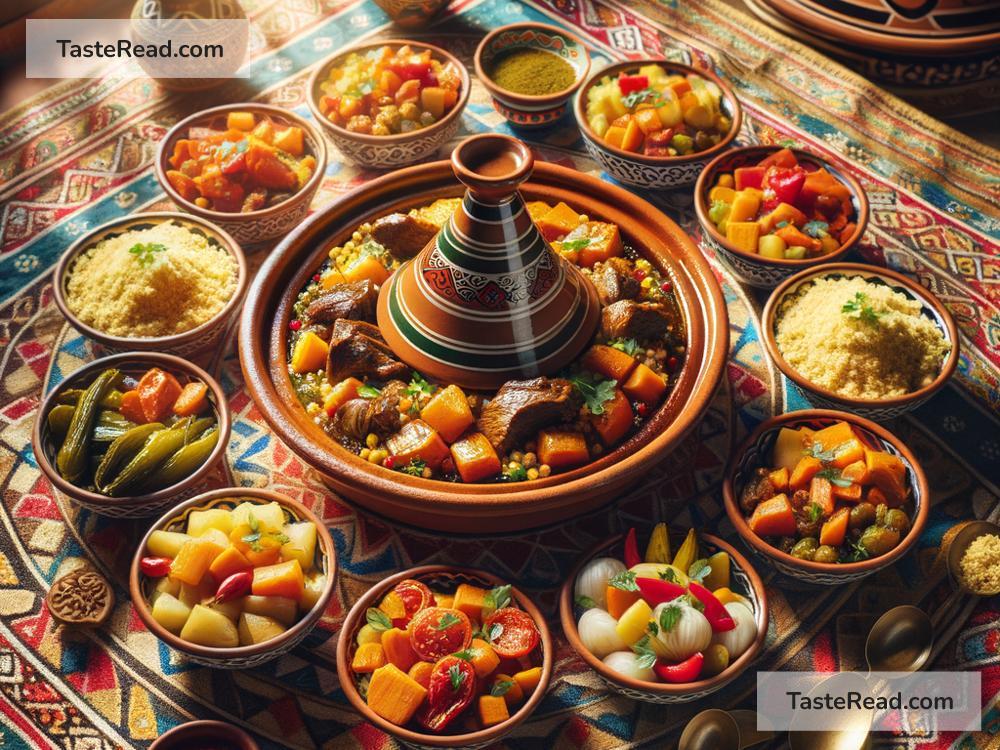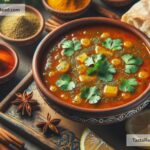The Cultural Significance of Moroccan Couscous
Moroccan cuisine is vibrant, diverse, and deeply rooted in tradition, with one dish standing out as an iconic treasure of the country: couscous. This humble yet flavorful grain dish has lived in the hearts and homes of Moroccan families for centuries. Couscous is much more than just food; it is a symbol of togetherness, history, and culture that brings people closer.
What is Couscous?
Couscous is made from tiny grains of semolina flour that are steamed until light and fluffy. It is often served with a variety of vegetables, such as carrots, zucchini, and pumpkin, cooked in a savory broth. Some versions include meat, like chicken, lamb, or beef, while others are vegetarian. Spices like cumin, turmeric, and ginger give the dish its signature Moroccan flavor. Couscous can also be sweetened with raisins, almonds, and cinnamon for special occasions.
Though couscous is simple in its ingredients, the dish holds an extraordinary place in Moroccan culture. Its significance goes beyond taste; couscous connects people, tells stories, and preserves traditions.
A Dish for Families and Communities
In Morocco, couscous is much more than an everyday meal. It is deeply tied to family life and social bonding. Every Friday, Moroccan families gather after midday prayers to share a bowl of couscous. This tradition is passed down through generations and represents the importance of family unity.
Preparing couscous is a labor of love and often involves the entire family. The skillful steaming of the grains, the careful seasoning, and the slow cooking of vegetables and meat are all done patiently. Older women often teach younger generations how to make couscous, preserving cooking techniques that have been handed down for hundreds of years. The process of making couscous is not rushed; it is treated as a ritual, reminding people to invest time and effort in creating something meaningful.
A Symbol of Hospitality
In Moroccan culture, hospitality is a fundamental value, and couscous plays a central role in welcoming guests. When someone visits a Moroccan home, they’re often welcomed with a hot plate of couscous served with a smile. Sharing food in Morocco is more than an act of generosity; it is a way of building human connections.
Offering couscous represents kindness and respect, making guests feel valued and appreciated. Many Moroccans believe that food tastes better when shared, viewing meals as an opportunity for conversation, laughter, and love.
The Role of Couscous in Celebrations
Couscous is not only enjoyed on Fridays but also plays a starring role in Moroccan celebrations like weddings, births, and religious holidays. At weddings, couscous is often prepared as part of a grand feast to honor the union of two families. During holidays like Eid, families make generous amounts of couscous to share with neighbors and the less fortunate, reinforcing a spirit of community and charity.
One unique tradition involving couscous happens after childbirth. Moroccan families welcome the arrival of a new baby by making couscous, served to relatives and friends who come to celebrate. This custom highlights the dish’s significance in marking life’s happy milestones.
Couscous as a Bridge to the Past
Couscous also serves as a bridge between Morocco’s present and past. The dish has Berber roots, dating back thousands of years. The Berbers, an indigenous group in North Africa, were among the first to develop couscous as a way to use durum wheat creatively. Over time, couscous became widely popular and incorporated into Moroccan cuisine.
Because couscous remains a staple in homes across Morocco, it reminds people of their ancestral heritage. Traditional tools, like the couscousiere (a special pot used for steaming couscous), are still used, preserving elements of the old ways of life.
Couscous in Modern Times
While couscous has ancient roots, it remains a beloved dish in today’s world. In modern Morocco, it is served in homes, restaurants, and marketplaces. Internationally, couscous has become a global delicacy, appreciated for its versatility and rich flavors. People from all over the world recognize couscous as a symbol of Moroccan culture.
Modern food trends have also inspired creative spins on couscous, incorporating new ingredients and techniques. From salads to desserts, couscous continues to evolve, proving that tradition and innovation can work together.
Conclusion
The significance of Moroccan couscous goes far beyond its delicious taste. It is a symbol of tradition, family, and hospitality. Every bite tells a story of heritage and unity, connecting people to one another and to their roots. Whether served at a Friday family meal, shared with guests, or enjoyed on a special occasion, couscous represents the heart of Moroccan culture.
This cherished dish transcends borders, bringing people together with its warmth and flavor. To understand Moroccan couscous is to understand the essence of Morocco itself: a country deeply committed to tradition, community, and sharing the joys of life.


